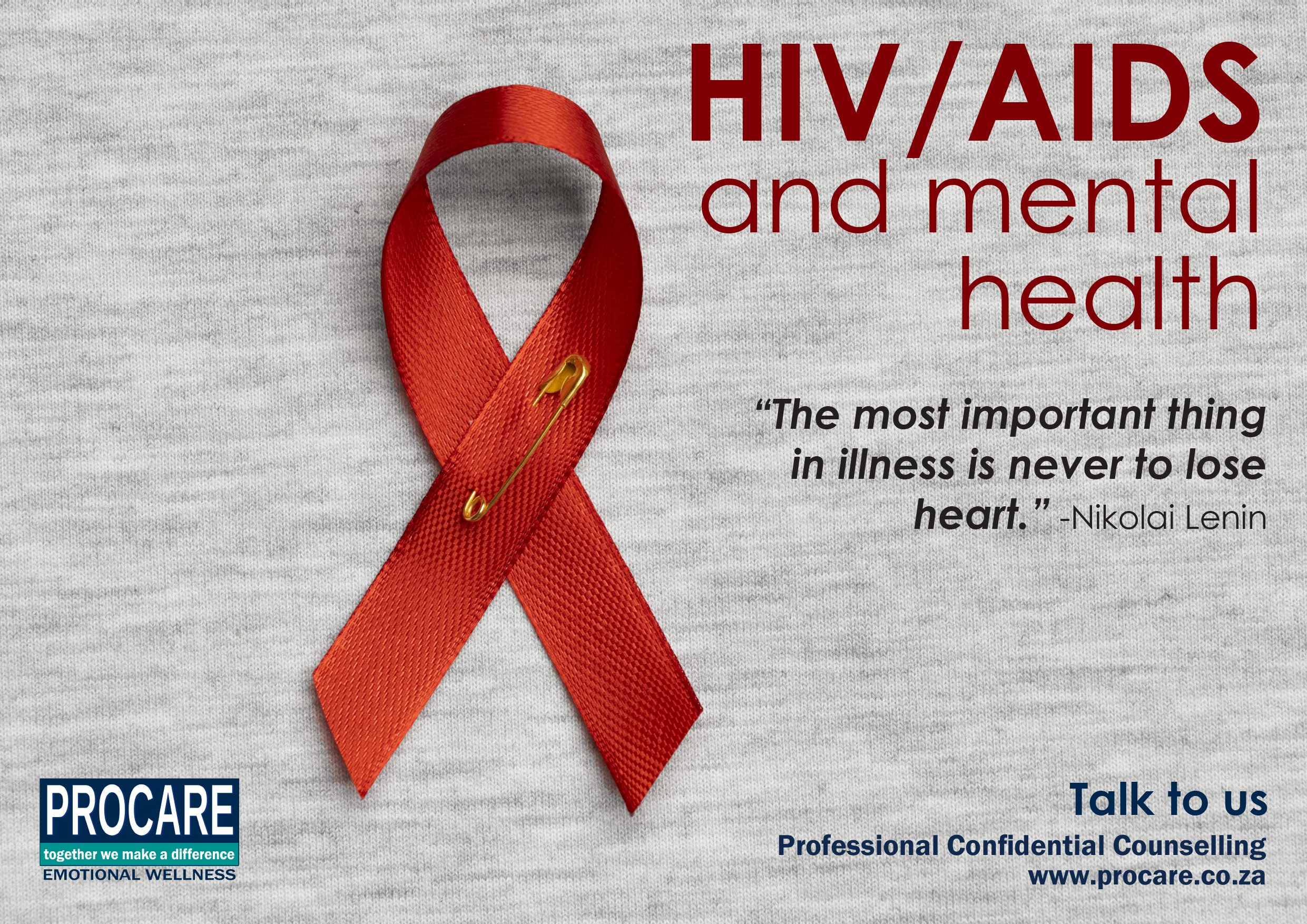HIV and mental health 2021
December 1 : World Aids Day
World AIDS day is commemorated each year on the 1st of December and is an opportunity for every community to unite in the fight against HIV, show support for people living with HIV and remember those who have died.
HIV/AIDS and mental health
HIV, or human immunodeficiency virus, is the virus that causes AIDS (acquired immunodeficiency syndrome) and can be transmitted during sexual intercourse; by sharing syringes; or perinatally during pregnancy, childbirth, or breastfeeding.
HIV weakens the immune system by destroying cd4 positive (cd4+) t cells, a type of white blood cell that is important for fighting off infections. The loss of these cells means that people living with HIV are more vulnerable to other infections and diseases.
People living with HIV/AIDS are at a higher risk for mental illness
Stigma and discrimination can be as devastating as the illness itself and may mean abandonment by a partner or family, social exclusion, job and property loss, school expulsion, denial of medical services, lack of care and support, and violence for those affected by them. These consequences, or fear of them, mean that people are less likely to come in for HIV testing, disclose their HIV status to others, adopt HIV preventive behaviour or access treatment, care, and support.
The stress associated with living with a serious illness or condition, such as HIV, can affect a person’s mental health. It is important for people living with HIV to know that they have a higher chance of developing mood, anxiety, and cognitive disorders. For example, depression is one of the most common mental health conditions faced by people living with HIV. It is important to remember that mental illness is treatable.
Where to find help
Because mental health conditions are common, many outlets can help you maintain good mental health. If you are having symptoms of depression or another mental health condition, talk to a professional mental health care provider such as a psychiatrist, psychologist, social worker or other mental health practitioner.


